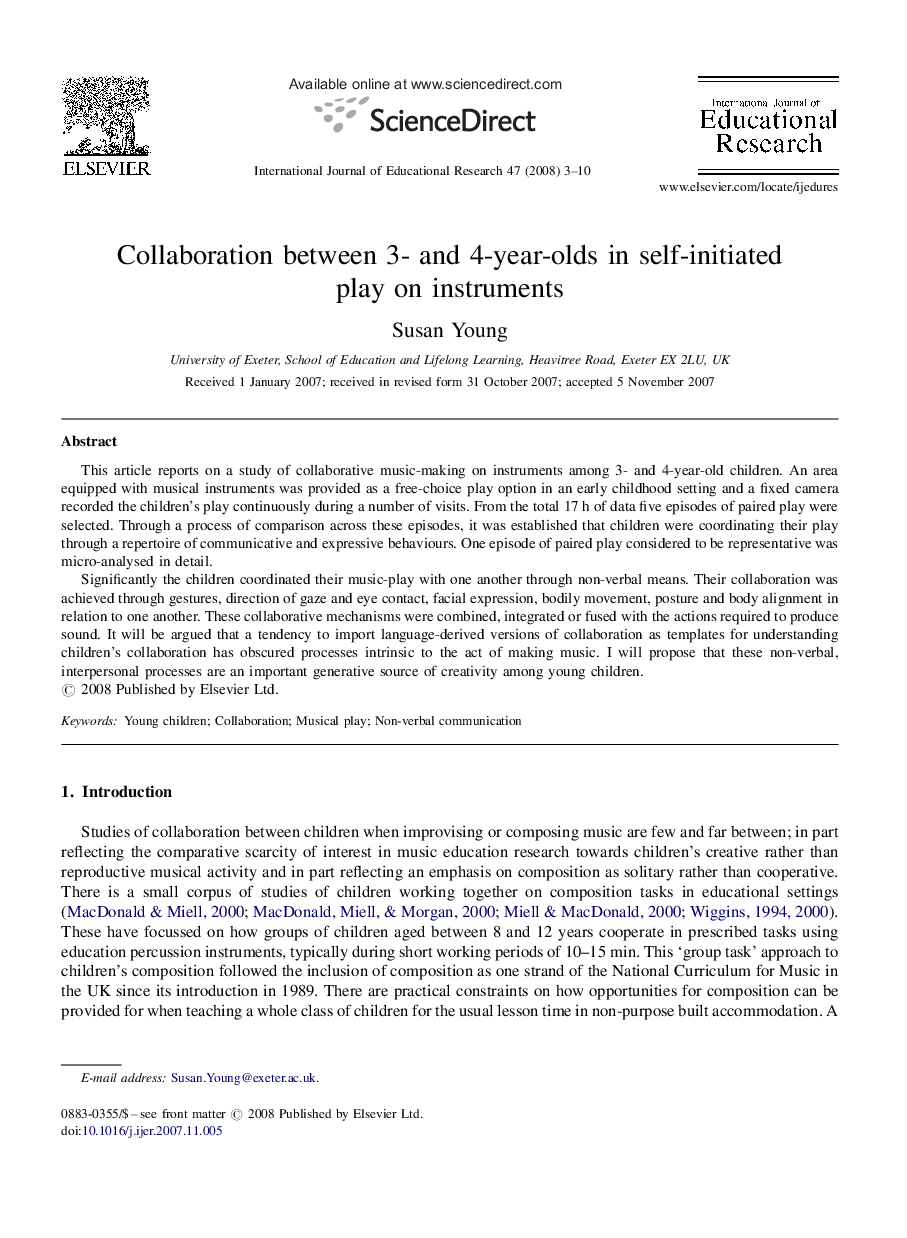| کد مقاله | کد نشریه | سال انتشار | مقاله انگلیسی | نسخه تمام متن |
|---|---|---|---|---|
| 357256 | 1435459 | 2008 | 8 صفحه PDF | دانلود رایگان |

This article reports on a study of collaborative music-making on instruments among 3- and 4-year-old children. An area equipped with musical instruments was provided as a free-choice play option in an early childhood setting and a fixed camera recorded the children's play continuously during a number of visits. From the total 17 h of data five episodes of paired play were selected. Through a process of comparison across these episodes, it was established that children were coordinating their play through a repertoire of communicative and expressive behaviours. One episode of paired play considered to be representative was micro-analysed in detail.Significantly the children coordinated their music-play with one another through non-verbal means. Their collaboration was achieved through gestures, direction of gaze and eye contact, facial expression, bodily movement, posture and body alignment in relation to one another. These collaborative mechanisms were combined, integrated or fused with the actions required to produce sound. It will be argued that a tendency to import language-derived versions of collaboration as templates for understanding children's collaboration has obscured processes intrinsic to the act of making music. I will propose that these non-verbal, interpersonal processes are an important generative source of creativity among young children.
Journal: International Journal of Educational Research - Volume 47, Issue 1, 2008, Pages 3–10